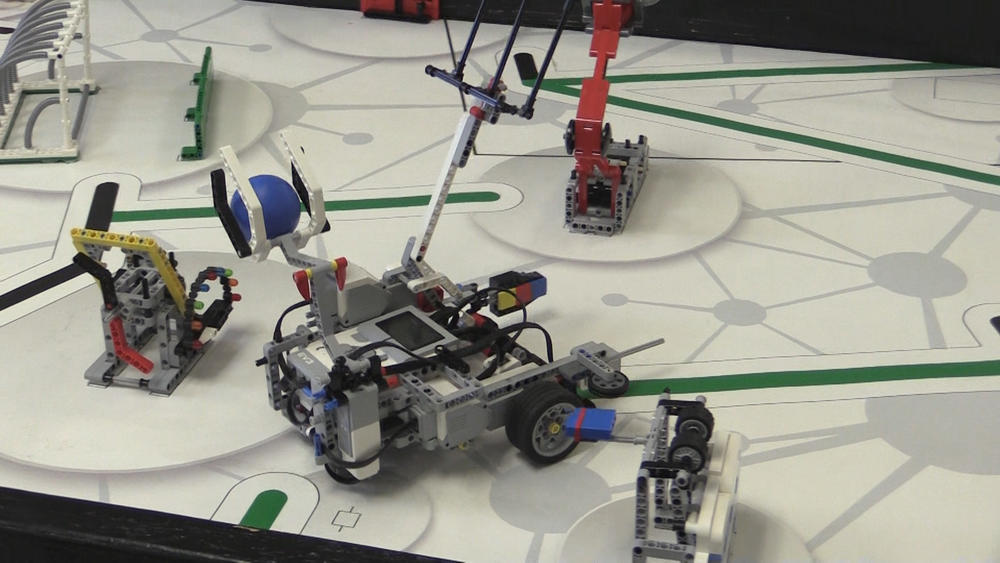
Section Branding
Header Content
Employers And Educators Work Together To Fill STEM Jobs (VIDEO)
Primary Content

The Department of Education says STEM-related fields - that’s science, technology, engineering and math-are expected to grow at a much higher rate than other fields over the next several years.
And there is talk on the federal level of investing more money towards educating a future STEM workforce.
Employers nationwide are reportedly seeing a gap in qualified workers to fill those positions.
Gulfstream Aerospace employs over ten thousand people in the Savannah area, but Staffing Manager Shannon Underhill said that number should be even higher.
"We need the right folks that have the science technology, engineering and math and can apply those concepts and it’s becoming harder and harder quite frankly to find the type of talent that we need."
25 percent of Gulfstream’s open positions are STEM-related.
Scroll down to view a video of robotics created by students from STEM Academy.
"This talent as I said isn’t readily available so we have to go into the market and seek that talent and sell the opportunities that we have and I think that that speaks to the unavailability," Underhill informs.
One place they search for talent is Savannah Technical College. She said they partner with the school to find students who would make a good fit at Gulfstream.
Savannah Tech also provides training in another that’s tied to the math and science field. Solar Power.
Lester Wiggins is a department head at Savannah Tech.
He climbed 24 feet up a creaking and somewhat wobbly metal staircase to show the 400 solar panels stretched across the roof of the building.
3 new solar power facilities for army bases including Fort Stewart in Savannah, are scheduled for completion by next year.
"They’re sprouting up everywhere it’s just that much of a growing industry, and with Tybee doing what they’re doing now, with Solar Tybee they’re calling it. It’s expanding into Chatham County," said Wiggins.
The Solarize Tybee project is intended to increase solar power use in homes and businesses on Tybee Island and throughout the county. Wiggins said that more solar projects means more jobs, at least in the short term.
But despite the demand for STEM workers, Armstrong State University’s College of Science and Technology has seen about an 18 percent drop in enrollment since 2011.
Brent Feske is the department’s interim assistant dean. He said, "There’s still an interest as students graduate from high school to be in the STEM. But then retaining them in a STEM major on the college level becomes very difficult."
Feske said a major culprit is the lack of student preparation, especially in math during K-12.
The STEM academy offers a STEM based curriculum and numerous stem-themed clubs - including a competitive robotics team. This is the middle school’s second year.
But space fills up fast at the academy, and not all students have the grades to get in.
"Particularly low- income kids are already behind they’re not even on grade level," said Patrick Bentley, the creator of the start up UrbanSTEM.
It teaches Savannah’s low income and minority students how to code.
Bentley said he attended private school during his formative years but eventually returned to public system.
"I had to go back to the neighborhood school. For me that was a culture shock."
Bentley said in his high poverty neighborhood students who didn’t stand out academically early on, got left behind. He hopes UrbanSTEM will help prepare them for jobs in coding.
Brent Feske of Armstrong University also says diversity in STEM fields is critical. Especially since minorities are the fastest growing group in the U.S.
"If that’s the case and they continue to be underrepresented in STEM we have an issue here right? It exacerbates the problem that we need to increase our STEM workforce," he said.
Certain stem related jobs are expected to increase by 32 percent over the next few years.
Tags: stem academy in savannah, Robotics
